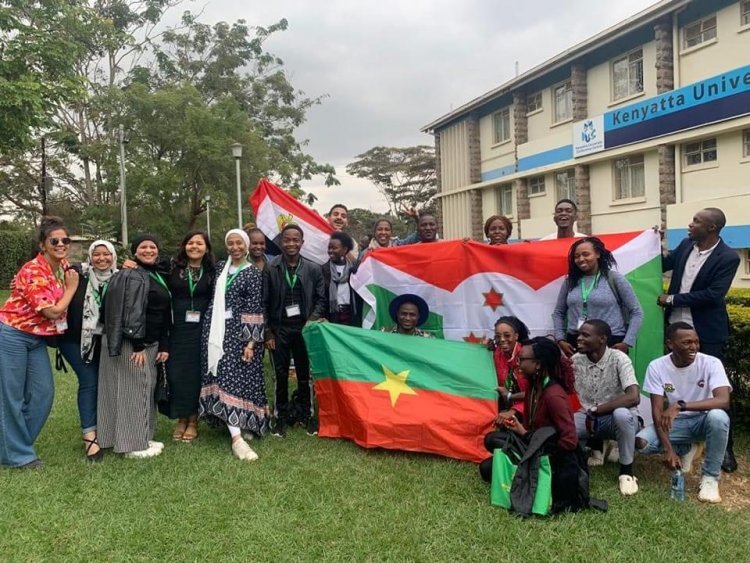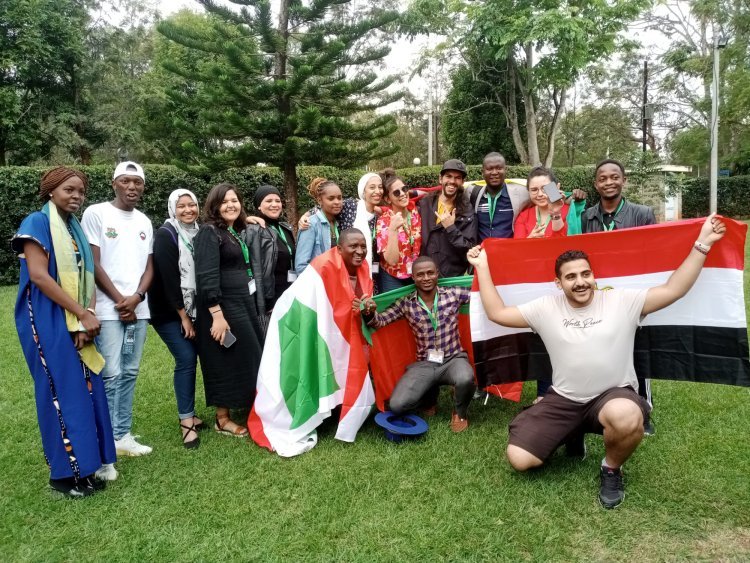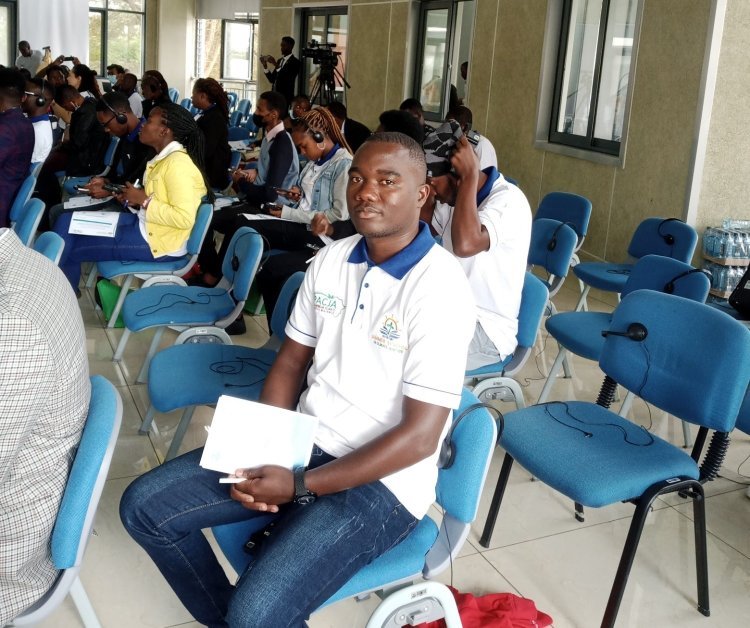The National Coordinator of the Nasser Youth Movement in Burundi participates in the second edition of the Summer School for Climate Justice in Kenya
Patrick Mushitsi, the national coordinator of the Nasser Youth Movement in Burundi, and a graduate of the Nasser Fellowship for International Leadership, batch 2 (2021), is participating in the second edition of the Climate Justice Summer School in the Kenyan capital, Nairobi. The activities of this edition are being held under the supervision and organization of Pan African Climate Justice Alliance (PACJA), with the participation of more than 150 young men and women environmental experts from 47 African countries.
The Nairobi Summer School aims to provide participants with a series of knowledge on climate justice and increase their awareness of the role of youth in protecting the environment. Climate justice is a modern political notion regarding the asymmetric consequences of climate change. It is reflected in particular through the legal actions carried out by associations against countries or companies that pollute the environment.
Climate justice is being embraced by associations or political movements at the crossroads of environment and human rights. It is also directly inspired by the idea of social justice, as it raises the issue of social and economic inequality in the face of the effects of climate change. In order to properly equip participants with the necessary tools, this year's edition featured various sessions and lectures in the program such as Climate Change Impacts in the Global South, Critical Climate Justice Issues for the Global South, Climate Justice Advocacy, Movement Building and Action in the Global South: Skills and Tools.
These events are organised by various experts on the environment, climate change and global economy. The first session began with training participants on the basis of human-induced climate change, the impacts of climate change in the global south, local adaptation and resilience building, urbanization and climate resilience at the city level that includes cities as frontiers to combat climate change and injustice. Other sessions also discussed mitigation measures and actions, loss and damage as a third pillar of climate action, political ecology, nature-based solutions and emerging approaches, climate justice foundations and the politics of international negotiations on climate change. In addition to analyzing the political economy of climate change and the relationship between Africa and the Global North.
According to the United Nations Framework Convention on Climate Change (UNFCCC), climate justice refers to the fact that nations must protect the climate system for the benefit of present and future generations on the basis of equity, differentiated responsibilities, and according to their common rules and capabilities.
From this perspective came the need to provide the necessary and specialized training for young people so that they can spread the concept of climate change throughout the African continent and the role that young people should play in order to protect the environmentn and improve the living conditions of current generations without compromising the living conditions of future generations. The school’s activities will be held from 27 June to 10 July 2022, in the capital, Nairobi.
It is noteworthy that the Nasser Fellowship for Leadership Leadership aims to create a new generation of young transformational leaders with a vision in line with the orientations of the Egyptian presidency in various countries through integration, in addition to networking the most influential young leaders in the world with training, necessary skills and strategic visions.




